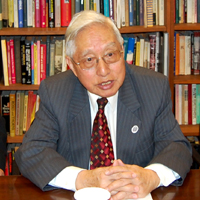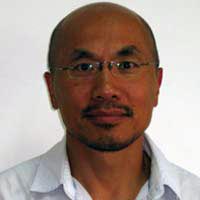The National Committee welcomed Ambassador Jin Yongjian, head of the China Society for People’s Friendship Studies, for a roundtable discussion on topics ranging from educational exchanges to the upcoming midterm elections in the United States.
China will soon have the world’s largest economy, but authors Damien Ma and William Adams argue that China’s economic growth will constrain it, not empower it. As has been the case for much of its history, China will continue to be shaped by scarcity. At a National Committee program on October 3 in New York […]
The Taiping Rebellion was one of the costliest civil wars in human history. Tens of millions of people lost their lives as Chinese rebels, imperial armies, and local militias clashed across the Yangzi Delta.
The trial of Bo Xilai, former Party Secretary of Chongqing, has been called the most important political trial in China in decades. On Wednesday, August 28 the National Committee convened a discussion with two American experts on Chinese legal development and politics, Ira Belkin and Cheng Li, respectively.
Commentators have long debated whether the space for civil society is growing or shrinking in China, or whether the concept of civil society is even relevant to China. But to many of those working in the civil society sector in China, the picture is quite clear. Two major trends are emerging in China's civil society space: the rapid growth of grassroots NGOs and the increased use of public advocacy, carried out by actors ranging from NGO networks to microbloggers.
China is undergoing the largest migration in human history: Since the mid-1980s, roughly 300 million people have moved from China's countryside into its cities; between now and 2025, its expected that another 300 million Chinese will make their ways in. Without appropriate urban planning, design, and construction focused on sustainable development, the consequences of this massive urbanization could be dire for China and the world.
In The Silk Road: A Very Short Introduction James Millward explores the historical background against which the silk road flourished, discusses the significance of old-world intercultural exchange, and puts the silk road into the context of world history. Professor Millward will discuss the historical significance and contemporary uses of the silk road at a National Committee program on May 16 at the Institute of International Education in New York City. Click below for a podcast interview with James Millward:
In her new book, Civil Society in China: The Legal Framework from Ancient Times to the “New Reform Era,” Catholic University Professor Karla Simon provides both an historical and contemporary analysis of the legal framework for civil society and citizen participation in China. At a National Committee public program on May 2, Professor Simon discussed […]
The United States-China relationship is at a critical juncture as both countries undergo great changes. At a National Committee program on April 10, Scott Kennedy and He Fan discussed the tensions and challenges in the relationship and offer policy recommendations from their new report, part of the Initiative on China and Global Governance project. Professors […]
In 2008 when Jeffrey Wasserstrom, Chancellor’s Professor of History at the University of California, Irvine, was working on his book, China in the 21st Century: What Everyone Needs to Know, China was in the headlines: it was the year of the Olympic Games, a major earthquake in Sichuan, demonstrations in Tibet, environmental protests in the Yangzi Delta, and nationalist outbursts in Beijing.








